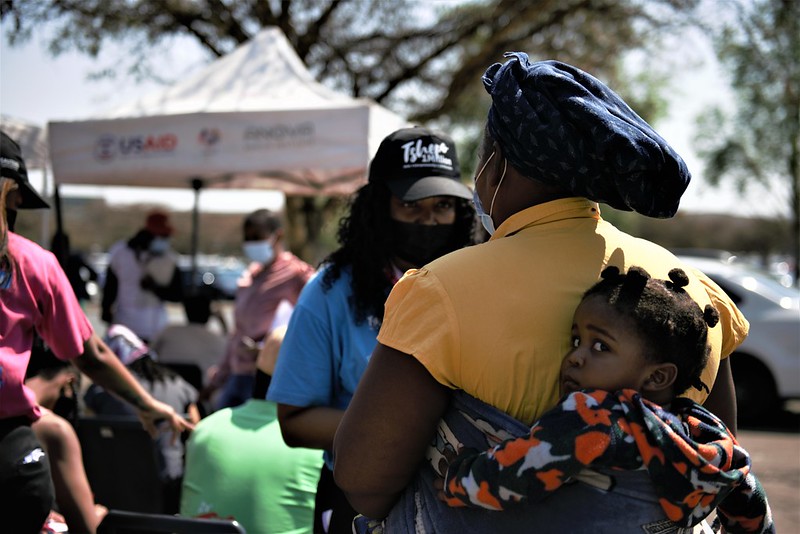COVID-19: The Success of Sierra Leone’s Vaccine Initiative
 Sierra Leone’s COVID-19 vaccination initiative has produced a cost-effective and accessible strategy to reduce vaccine inequity in the country and protect the most vulnerable of the population against new strains of the virus. This groundbreaking initiative underscores a new approach to vaccination processes in developing nations by mobilizing vaccine centers and reducing treatment costs.
Sierra Leone’s COVID-19 vaccination initiative has produced a cost-effective and accessible strategy to reduce vaccine inequity in the country and protect the most vulnerable of the population against new strains of the virus. This groundbreaking initiative underscores a new approach to vaccination processes in developing nations by mobilizing vaccine centers and reducing treatment costs.
Vaccine Inequity in Sierra Leone
As of March 2022, only 15% of the population of low-income countries had received one dose of the COVID-19 vaccine, compared to 80% of those in high-income countries. In Sierra Leone specifically, factors such as geographical isolation and poverty have acted as barriers to receiving vaccination for the virus. On average, a Sierra Leonean would have to undertake a three-and-a-half-hour round journey to receive a vaccine, costing them more than one week’s wages.
The low vaccination rates in Sierra Leone leave the population vulnerable to the effects of COVID-19, even after the height of the pandemic. The risk of disease recurrence and new virus variants threatens those who have yet to receive their first vaccine. Due to the low vaccination rate, these resurgences could result in further lockdowns, affecting the country’s economy’s growth and threatening individuals’ livelihoods.
The Aims of Sierra Leone’s COVID-19 Vaccine Initiative
In 2022, as a result of the low vaccination rates in the country, Sierra Leone’s Ministry of Health (MoHS) and the nongovernmental organization (NGO) Concern Worldwide developed a new model to allow widespread access to the vaccine. Their primary aim was to tackle the geographical and economic barriers preventing the population from receiving vaccination for the virus.
By mobilizing vaccine doses and nurses within the country, the strategy can reach the most remote rural communities in Sierra Leone who would otherwise be unable to access the treatment. This alleviates the long and costly travel to medical centers to receive the vaccine.
In addition, the initiative vastly reduced the costs involved with administering a dose of the vaccine. Similar strategies implemented across other developing countries saw an average price of $80 a dose; by comparison, Sierra Leone’s COVID-19 vaccination initiative has lowered the price to around $33.
To maximize the cooperation of communities with the initiative, the strategy engaged in educating cultural and village leaders before the vaccine administration. Information was given on the safety, effects and importance of the vaccination in each village involved in the initiative.
The Results of Sierra Leone’s COVID-19 Vaccine Initiative
The strategy proved a huge success in reducing vaccine inequity in Sierra Leone and improving immunization rates among the population. By December 2022, Sierra Leone had immunized 70% of its adult population, achieving the target the World Health Organization (WHO) set. Furthermore, as of March 2023, the strategy resulted in almost eight million vaccine doses being administered to the population.
During the implementation of the strategy, new methods were discovered to render the process even more cost-effective. Due to the high cost of the initiative being made up of transportation fees for medical equipment and professionals, bundling other vaccines saw a further reduction in this cost. As proposed by the Ministry of Health, a combination of the COVID-19 vaccine, Human papillomavirus (HPV) vaccination for girls aged 10-12 and routine immunizations for children aged 0-6 at these mobile vaccine sites could simultaneously improve the cost-effectiveness of the program and give more people access to life saving treatments.
Looking Forward
The success of Sierra Leone’s COVID-19 vaccination initiative underscores a pivotal moment in reducing vaccine inequity and improving access to immunization in developing nations. Mobilizing health care workers and facilities to the most isolated communities removes the barriers preventing population members from receiving vaccinations and the most vulnerable members of society can access treatments for preventative diseases.
This initiative provides a holistic model through which many other vaccinations can be administered more widely than ever before. By immunizing the population against these preventative diseases, the country can see more stable economic growth through a healthy workforce and reduced risks of virus resurgences or lockdowns.
– Ben Kane
Ben is based in London, UK and focuses on Global Health for The Borgen Project.
Photo: Flickr
